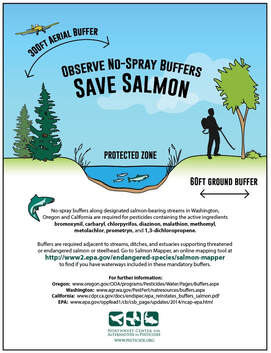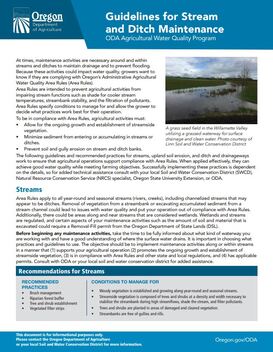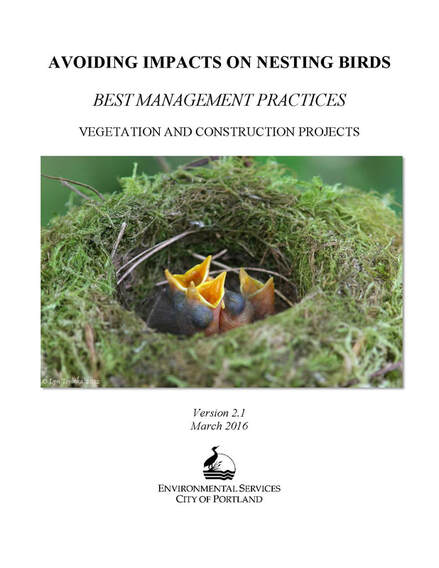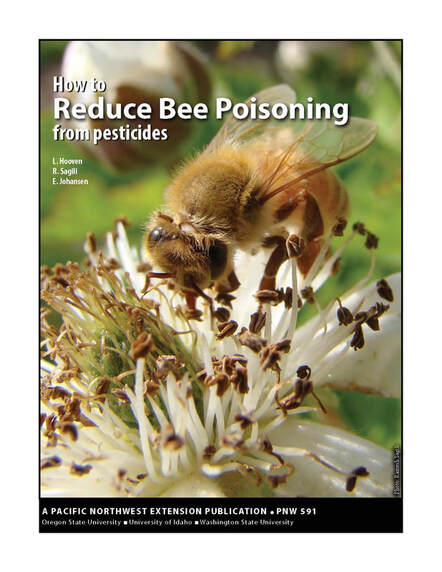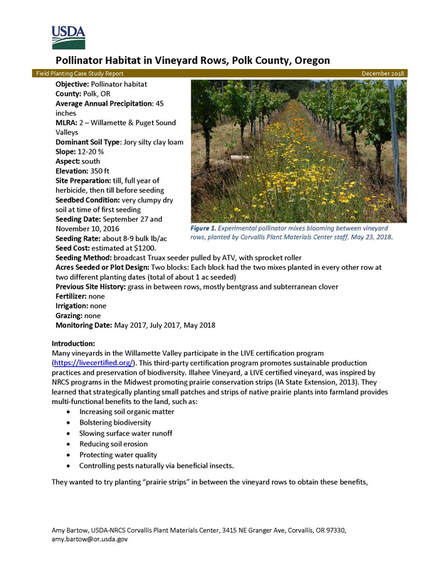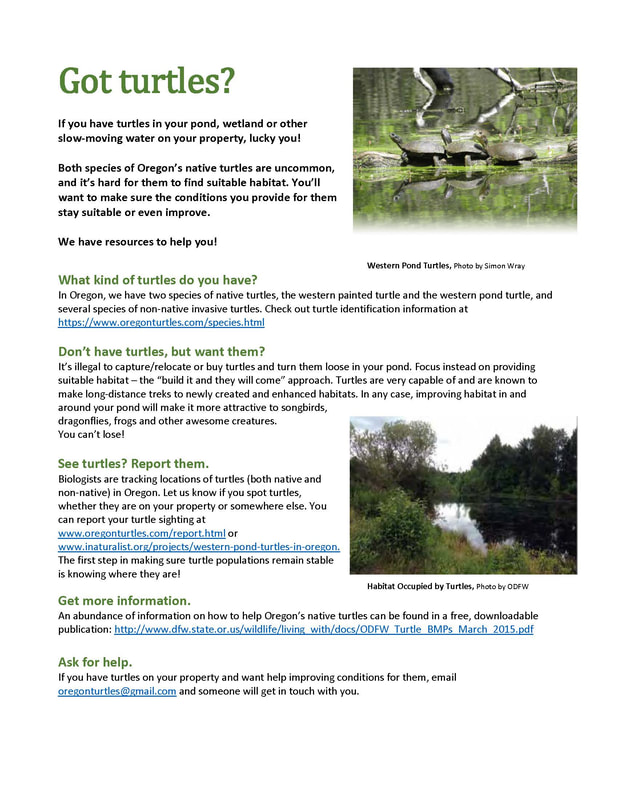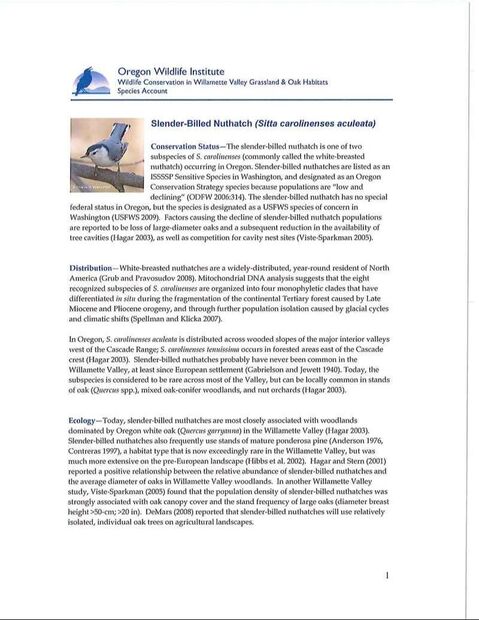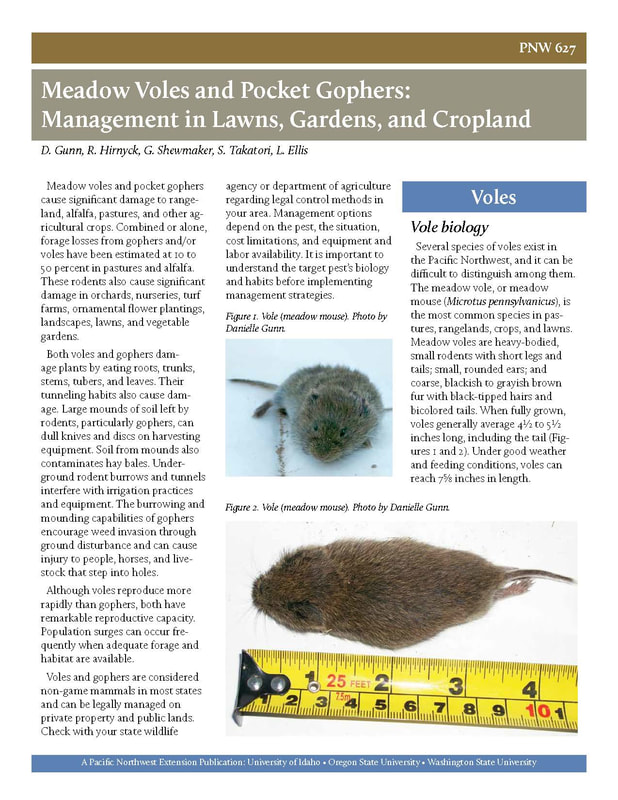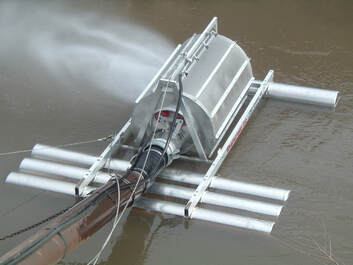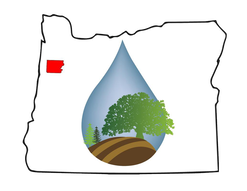Save Salmon: no Spray BuffersForever a long standing symbol of the Pacific Northwest, salmonids and other anadramous fish are undoubtedly and unquestionably in peril due to a wide variety of factors ranging from general warming trends in the ocean, and excessive predation at various movement barriers (Willamette Falls,etc.).
While a large majority of these issues can only be addressed through acts of state or federal law, land owners and managers throughout Polk County can take several steps to do their part, to help preserve and protect the various legacy fish species that inhabit our water. One of the easiest and most effective ways to "do your part" in terms of helping native fish, is to establish and maintain streamside/riparain buffers, and in particular, to be extremely cognizant and judicious in your use of any chemical (herbicide, pesticide, insecticide, etc.) near a body of water, whether it is designate fish bearing or not. In an ideal world, buffers of 60 ft would exist on both sides of a fish bearing stream in which chemicals of any sort would not be applied, and although not entirely common in Polk County, a 300 ft buffer would exist for aerial spraying. |
|
|
|
|
|
|
|
|
|
|
|

